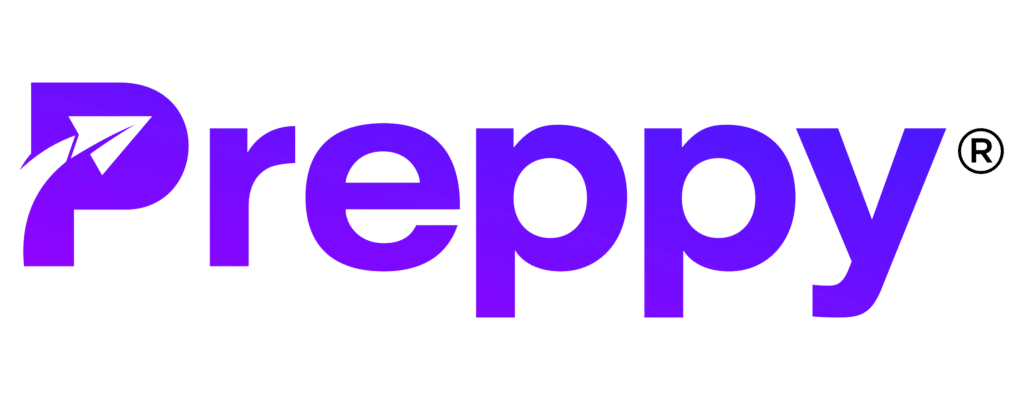Have you been sitting there, contemplating your next move, and suddenly, boom, it hits you? You’ve discovered an exciting career as a medical assistant. You might be thinking, “This sounds like a fulfilling career—I get to work in healthcare, help patients, and earn up to $40,000 a year!” But wait, what skills do you need to work as a medical assistant? What is expected of you as a beginner with no experience in healthcare? Will it be challenging to acquire these skills and succeed in this field?
In this guide, we’ll dive deep into the top seven medical assistant skills, and how to acquire them quickly and effectively. Whether you’re just starting out or considering a switch to this career, these skills will set you up for success.
1. Vital Sign Measurement
The first clinical skill you’ll need as a medical assistant is the ability to measure and record vital signs. Whenever a patient visits a physician, you’ll likely be tasked with taking their vital signs. This includes measuring body temperature, pulse rate, blood pressure, respiration rate, and blood oxygen levels.
Taking and recording vital signs is a core duty, as it helps streamline the physician’s work. By providing accurate and timely data, you help ensure the examination process goes smoothly. Physicians rely on these readings to assess the patient’s current condition, and you’ll play a critical role in ensuring the information is correct.
How to Learn It:
You can acquire this skill through a medical assistant training program or on-the-job experience. Many medical assistant training programs provide hands-on practice, ensuring that you’re proficient in taking and documenting vital signs before you step into a healthcare facility.
2. CPR (Cardiopulmonary Resuscitation)
CPR is an essential skill for any healthcare professional, including medical assistants. You need to be prepared to respond in an emergency, such as when a patient’s heart stops beating. Medical assistants are often the first to arrive at the scene of an emergency in outpatient facilities or clinics. Having the ability to perform life-saving CPR is not just an expectation but a necessity.
How to Learn It:
Most medical assistant programs include CPR certification as part of the curriculum. You can also take standalone CPR certification classes, which are often available through organizations like the American Red Cross.
3. Medical Terminology
In a healthcare setting, you’ll be working alongside physicians, nurses, and other medical professionals. To communicate effectively, you need to be fluent in medical terminology. Understanding medical language allows you to assist physicians during procedures, record accurate patient notes, and understand the diagnoses and treatments being discussed.
Familiarity with medical terms is also crucial when dealing with patient records, medications, and billing systems. Without this knowledge, it can be challenging to perform tasks effectively and efficiently.
How to Learn It:
Many online medical assistant courses offer focused lessons on medical terminology. Flashcards, apps, and textbooks are also great resources to help you memorize and understand the terms commonly used in healthcare.

4. Scheduling and Appointment Setting
Beyond clinical duties, medical assistants are often responsible for administrative tasks, such as scheduling appointments and managing patient inflow. This skill is essential for ensuring the healthcare facility runs smoothly. You’ll need to schedule patient visits based on the physician’s availability, set up follow-up appointments, and accommodate emergencies.
While this may sound simple, it requires careful organization and time management. You’ll be working in a busy environment where things can change rapidly, so being adept at juggling appointments is a vital skill.
How to Learn It:
You’ll likely learn scheduling and appointment-setting techniques through on-the-job training. However, if you’re seeking a head start, many medical assistant certification programs include administrative training that covers patient scheduling, using scheduling software, and customer service skills.
5. Computer Literacy
In today’s healthcare landscape, much of the work is digitized. From electronic health records (EHR) to scheduling software and digital communication with specialists, medical assistants are expected to be proficient with computers and other devices. This includes entering patient information accurately, filing insurance claims, scheduling tests, and handling patient billing systems.
Without a strong grasp of computer skills, you may struggle in your role. Modern healthcare facilities are highly dependent on technology, and being computer literate is a non-negotiable skill for medical assistants.
How to Learn It:
If you’re not already tech-savvy, there are countless online resources, including tutorials and basic computer courses, that can help you build your digital skills. Most medical assistant programs will also include training on EHR systems and other healthcare software.
6. Multitasking and Organization
Healthcare environments are dynamic, fast-paced, and sometimes chaotic. On any given day, you may be tasked with taking vital signs, handling patient records, scheduling appointments, and responding to emergencies—all within a few hours. As a result, multitasking is one of the most important skills you need as a medical assistant.
The ability to juggle multiple clinical and administrative tasks effectively requires strong organizational skills. You’ll need to prioritize tasks based on urgency, manage your time wisely, and ensure nothing falls through the cracks. This will not only make your job easier but will also improve patient care.
How to Learn It:
You can improve your multitasking and organizational skills through practice and experience. Start by making to-do lists, prioritizing tasks, and setting realistic goals. As you gain more experience in a healthcare setting, you’ll become more efficient at managing multiple responsibilities at once.

7. Empathy
Last but certainly not least is empathy. As a medical assistant, you’re not just dealing with medical procedures—you’re also working with patients who may be anxious, nervous, or in pain. Having the ability to understand and share the feelings of your patients can make a world of difference in how they experience their visit to the doctor.
By demonstrating empathy, you can build trust, make patients feel heard, and help ease their fears. Being compassionate also improves communication, as patients are more likely to open up about their symptoms and concerns when they feel comfortable and understood.
How to Learn It:
Empathy is more of a natural ability, but it can be nurtured. Take the time to listen actively to patients, show kindness in small interactions, and put yourself in their shoes. These small acts of empathy can significantly enhance the patient experience.
Additional Medical Assistant Skills
Here are some additional skills you might benefit from as an aspiring Medical Assistant:
Clinical Skills
#1 Administering Injections
Medical assistants often give patients injections, such as vaccines or medications.
This requires knowledge of injection techniques, sterile practices, and the correct administration method (intramuscular, subcutaneous, etc.).
For instance, a medical assistant might administer a flu shot, ensuring the injection is delivered accurately while maintaining hygiene to avoid infections.
#2 Phlebotomy (Drawing Blood)
Phlebotomy involves drawing blood samples from patients for testing.
To do this correctly, a medical assistant must be able to locate veins, apply a tourniquet, and use sterile needles to collect the sample.
#3 Wound Care and Dressing
Medical assistants also assist in wound care, cleaning, and dressing. This involves applying antiseptics, bandaging wounds, and monitoring healing.
For example, after a minor procedure, a medical assistant might clean the wound and apply a sterile dressing to protect it from infection while educating the patient on at-home care.
#4 Electrocardiogram (EKG) Administration
Medical assistants often perform EKGs to check heart function. This involves attaching electrodes to the patient’s chest and limbs to monitor electrical activity.
An example would be running an EKG on a patient experiencing chest pain to help diagnose potential heart issues.
#5 Assisting in Minor Surgeries
Medical assistants provide crucial support during minor surgeries by preparing instruments, maintaining sterility, and assisting the physician during the procedure.
For example, during a mole removal, the medical assistant ensures all tools are sterile, hands instruments to the doctor, and helps clean up post-operation.
Administrative Skills
#1 Managing Patient Records
Medical assistants ensure that personal and medical information is recorded properly in the electronic health records (EHR) system.
For instance, when a new patient visits, the medical assistant inputs their medical history, medications, and insurance information into the system, ensuring it’s available for the healthcare provider’s review.
#2 Processing Insurance Claims
Medical assistants are often responsible for verifying insurance coverage and processing claims. This involves checking patient eligibility, preparing claim forms, and submitting them to insurance companies.
An example of this skill in action is when a medical assistant reviews a patient’s insurance policy before a procedure to ensure coverage and help the patient understand their financial responsibility.
#3 Medical Billing and Coding
Medical assistants are responsible for coding medical procedures and diagnoses for billing purposes, using codes from the ICD-10 or CPT manuals, and ensuring that services are billed correctly.
For instance, after a patient’s visit, a medical assistant assigns the appropriate codes for services rendered, ensuring the claim is processed accurately by insurance.
Soft Skills
#1 Communication Skills
Strong communication skills are crucial for medical assistants to interact clearly with patients and healthcare professionals. This includes both verbal and written communication.
For example, when explaining a medical procedure, a medical assistant must use simple language that a patient can easily understand.
#2 Time Management
Medical assistants must manage their time effectively to handle multiple tasks throughout the day, from patient check-ins to administrative duties.
For example, during a busy day, a medical assistant might have to balance attending to patients in the waiting room while ensuring that documentation is up-to-date for upcoming appointments.
#3 Problem-Solving
Problem-solving skills are important when unexpected challenges arise. Medical assistants often need to think on their feet.
For example, if a patient’s insurance information is outdated, a medical assistant may need to quickly contact the insurance provider to resolve the issue before the patient’s appointment, ensuring that their visit goes smoothly.
#4 Adaptability
In a healthcare environment, things can change quickly, and medical assistants must be adaptable to handle those changes.
For instance, if a doctor’s schedule changes suddenly or if there’s an emergency, a medical assistant must adjust their tasks without getting overwhelmed, ensuring that patient care remains seamless.
The Best 3 Ways To Develop Skills of a Medical Assistant
Employers look for candidates who are well-rounded, and having proficiency in clinical, administrative, and soft skills will set you apart in the healthcare field.
Furthermore, well-developed skills can lead to job promotions, higher salaries, and a more rewarding work experience.
Here are the three key methods to help you develop these vital skills and enhance your career opportunities:
#1 Enrolling in the Right Training Program
Enrolling in a formal training program is one of the most effective ways to develop the required skills for a Medical Assistant role.
Different types of programs are available, such as associate degrees, certificate programs, and online courses.
Associate degree programs are comprehensive but often take two years to complete. Certificate programs, on the other hand, are shorter and can typically be completed within a year.
But the big downside with these full-time programs is that they are expensive and are almost unachievable for common people like us.
But the online programs are different, and often considered to be the best. So, they are most recommended by industry professionals. This is due to their affordability, flexibility, and faster completion rates.
Our top recommendation is Preppy’s Self-Paced Medical Assistant Training Program.
Preppy offers a fully online, self-paced course format, which is ideal for those looking to complete their education quickly while managing other commitments.
The program costs $1,599, offers a University certificate, includes an externship opportunity, and could make you ready to sit for the CCMA exam, all in as little as six months.
#2 Gain Experience Through Externships
Another essential aspect of skill development is gaining real-world experience through externships and volunteer work.
Externships are usually integrated into medical assistant training programs, offering hands-on exposure to day-to-day operations in a clinical setting.
For instance, Preppy’s program provides an externship opportunity, allowing students to apply what they’ve learned in a real-world environment.
These externships are invaluable for skill development because they allow you to practice both clinical and administrative tasks under the guidance of experienced professionals.
#3 Obtain Certification and Related Credentials
Certification demonstrates your proficiency and commitment to the profession. Obtaining the right certifications can significantly improve your employability and help you stay competitive in the field.
CCMA (Certified Clinical Medical Assistant) certification, provided by the National Healthcareer Association (NHA), is crucial to becoming a certified medical assistant.
This certification not only confirms your clinical competency but also opens doors to more job opportunities.
Beyond CCMA, you can enhance your resume by acquiring additional certifications like CPR certification or becoming a Certified Phlebotomist.
With Preppy, you could get the proper prep you require to ace certification exams such as the CCMA.
So, developing the right skills as a Medical Assistant is crucial to thrive in the healthcare industry.
Let’s talk in detail about:
Preppy’s Medical Assistant Training Program

Overview
Preppy’s Medical Assistant Training Program is entirely online and self-paced, making it ideal for students who need flexibility. Preppy’s program is offered in partnership with Auburn University, providing a reputable university certificate upon completion.

Program Highlights
- Mode of Delivery: 100% online and self-paced.
- Program Duration: Can be completed in as little as 4 to 6 months, with access for up to a year.
- Tuition Cost: Just $1,599.
- Certification: Prepares students for the CCMA certification exam.
- Practical Experience: Includes an externship opportunity at a local healthcare facility.
- Additional Benefits: Offers job assistance for eligible graduates and a free laptop if you pay the tuition in full.
Conclusion
Becoming a medical assistant is a rewarding career choice, but it requires a blend of clinical, administrative, and interpersonal skills. From taking vital signs and performing CPR to scheduling appointments and showing empathy to patients, mastering these seven key skills will set you on the path to success.
Whether you choose to pursue a formal education or gain these skills through on-the-job training, you could be ready to step into this fulfilling role in as little as six months. Take the leap into a career where you can make a meaningful impact every day!
Also read: Is Medical Assistant School Hard?
About:
Preppy was founded by higher education expert, Grant Aldrich, whose work on college affordability and accessibility has been featured in Forbes, Bloomberg Businessweek, Business Insider, American Express, AOL, MSN, Thrive Global, Reader’s Digest, Inside Higher Ed, Evolllution, EducationDive, and nearly 100 radio shows and podcasts.
Time is money. Instead of programs that could take 2 years, Preppy provides you with education in a few months through immersive online training.
Healthcare, IT, Business, Trades…Preppy gets you ready for the trending careers in our modern economy.
Our team of higher education and startup veterans has created the best solution so everyone can obtain the emerging careers of today and tomorrow.
We look forward to speaking with you. You may also call 800-729-1317.
Medical assistantmedical assistant skills





